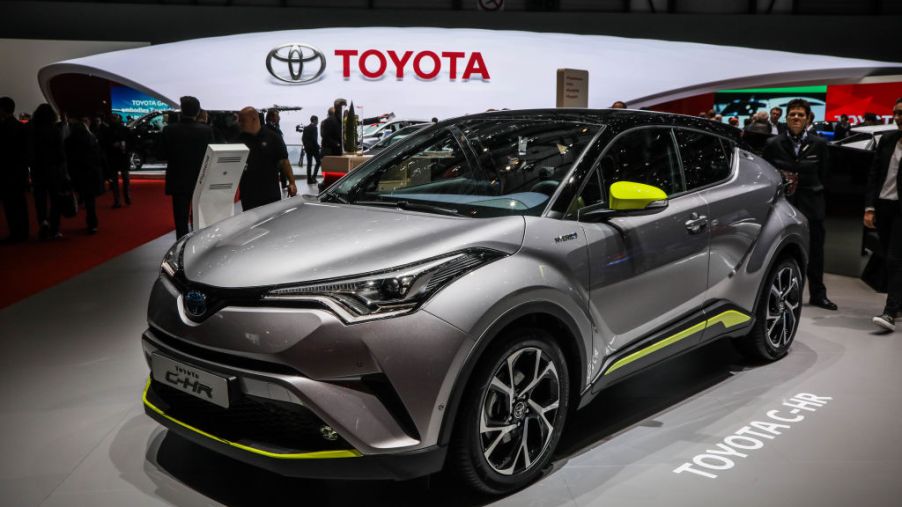
The Most Disappointing New Toyota You Should Avoid
For the most part, Toyota is known for building safe and reliable vehicles. Or it was until Toyota installed Takata airbags that they had to replace, at least. Then the Japanese automaker had to replace the airbags once again, because they still continued to use Takata airbags. To add fuel to the fire, there is another lawsuit brewing against Toyota because a filter installed in some diesel engines isn’t functioning properly.
Now it appears that Toyota has made it onto Consumer Reports chopping block. The Toyota C-HR is one of the 10 least satisfying cars of 2019. Thankfully, it’s the only Toyota to make the disappointing list, but with all the car brands out there, why did the C-HR make the list at all?
Why Consumer Reports is disappointed by this Toyota
Toyota isn’t used to disappointing fans or receiving bad press, but it happens to the best of us from time to time. The good news about Consumer Reports 10 least satisfying cars is that Toyota only had one to make it to the list. The bad news is that the C-HR took a real beating from the product rating site.
The road test received a 61 out of 100, the predicted reliability earned 3 out of 5, and the predicted owner satisfaction score is 1 out of 5. That’s just the tip of the iceberg. One of the biggest complaints is that the C-HR doesn’t offer AWD, even though the majority of its competitors do. For a company as innovative as Toyota, the decision not to offer AWD is simply puzzling, especially since the C-HR is labeled as a crossover.
The engine runs well. Or it does until you try to accelerate rapidly, at least. While some cars are known for having impressive speed, the C-HR chugs along like a cartoon car that has run out of gas. Since Toyota clearly has the experience and the technology to create a vehicle that accelerates smoothly, as proven by it’s minivan that can outpace a sports car, one has to wonder what Toyota was thinking.
Did Toyota try to rush the C-HR out?
Did Toyota slap something out there to say they have a crossover, while they concentrate on their hybrid vehicles? When they decided how much they were going to spend on design, did they not budget enough for the C-HR? Or did they simply not do enough testing?
Another point that Consumer Reports hated was how loud the C-HR is, especially when traveling on the highway. For someone who dislikes a loud ride, this is definitely going to be a deal-breaker. Add in the fact that there is already a recall on the seatbelt of all things, and things aren’t looking so great for the C-HR.
Is it a total loss for Toyota?
You may be wondering if there is any hope for the Toyota C-HR. Could a car with so many issues possibly have any redeemable qualities? Like most things in life, it’s not all bad. The question is, does the C-HR have enough redeemable qualities to make it worth buying.
U.S. News actually gave the C-HR a good predicted reliability rating. It also offers technology like Apple CarPlay that many consumers are going crazy over. The ride is also quite pleasant if you’re not trying to gas it, or drew the short straw and are stuck riding in the backseat. That’s about it for the good news, however.
U.S. News recommends that you don’t buy the C-HR, as there are a lot of other competitor vehicles that are far superior. So it does appear that the C-HR is a total loss. There will always be someone who probably falls in love with its looks, but for the most part, it’s not advised that anyone buy the C-HR.


